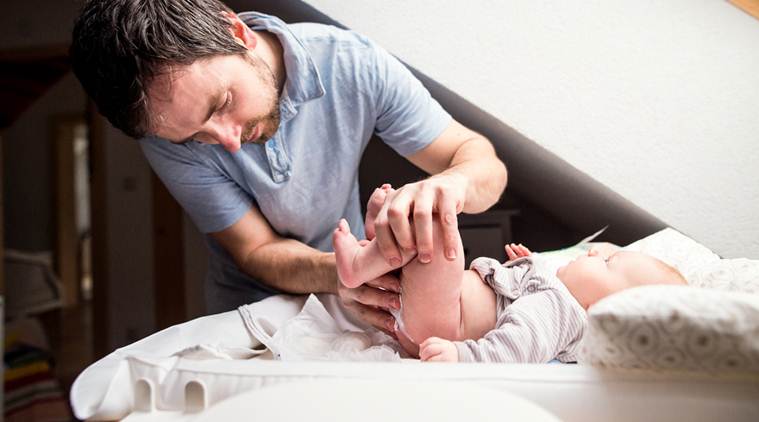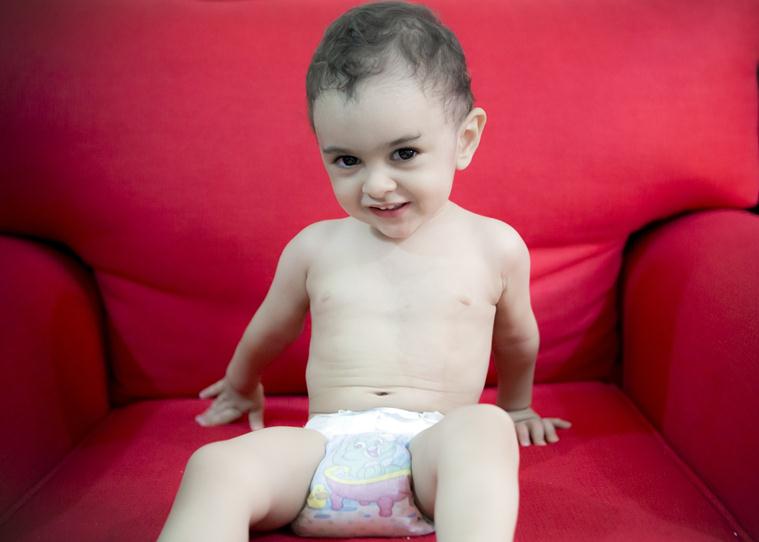📣 For more lifestyle news, click here to join our WhatsApp Channel and also follow us on Instagram
No kidding, your baby’s ‘poop’ could reveal their IQ level!
A study showed that babies with relatively high levels of the bacterial genus 'Bacteroides' in their poop have better cognitive scores compared to others. Researchers also believe a newborn’s first stool may indicate if the child is at greater risk for future cognitive problems due to prenatal alcohol exposure.
 The higher diversity of microbiomes in their stool, the lower cognitive skills, something researcher says is quite surprising. (Source: Thinkstock images)
The higher diversity of microbiomes in their stool, the lower cognitive skills, something researcher says is quite surprising. (Source: Thinkstock images)
Parents love everything about their newborn, apart from one thing. No matter how adorable the little one’s every gesture is one thing makes every new parent a little squeamish.
Yes, their poop.
Are you one of those, who creep out every time your little one is done the deed and you need to change the nappy and dispose of them with disgust? Well, reading this might change your mind next time you see baby’s faecal matters.
Recent research has shown that faeces has an interesting link to baby’s IQ and their cognitive skills. According to a study published in Biological Psychiatry, researchers found an association between certain kinds of microbial communities and higher levels of cognitive development later stages of life.
“The big story here is that we’ve got one group of kids with a particular community of bacteria that’s performing better on these cognitive tests,” said Rebecca Knickmeyer, Associate Professor of Psychiatry, at the UNC School of Medicine who is leading the research. “This is the first time an association between microbial communities and cognitive development has been demonstrated in humans,” she said in a press release.
For the study, researchers sift through the stools of over 80 one-year-olds and then separated into three different categories to determine whether there might be a relationship between the gut microbiome (communities of microbes) and brain development.
 The results showed babies in the group with relatively high levels of the bacterial genus ‘bacteroides’ had better cognitive scores compared to the other. (Source: Pixabay)
The results showed babies in the group with relatively high levels of the bacterial genus ‘bacteroides’ had better cognitive scores compared to the other. (Source: Pixabay)
The results showed babies in the group with relatively high levels of the bacterial genus ‘bacteroides’ had better cognitive scores compared to the other. In addition, infants with highly diverse gut microbiomes didn’t perform as well as those with less diverse microbiomes.
So, the higher diversity of microbiomes in their stool, the lower cognitive skills, something Dr Knickmeyer says is quite surprising.
“We had originally predicted that children with highly diverse microbiomes would perform better — since other studies have shown that low diversity in infancy is associated with negative health outcomes, including type 1 diabetes and asthma. Our work suggests that an ‘optimal’ microbiome for cognitive and psychiatric outcomes may be different than an ‘optimal’ microbiome for other outcomes,” the report said.
For the moment, the team of researchers are still trying to figure out the mechanism linking gut bacteria communities to brain development.
Another group of researchers at the Case Western Reserve University in Ohio believes a newborn’s first stool may indicate if the child is at greater risk for future cognitive problems due to prenatal alcohol exposure.
 Researchers also believe a newborn’s first stool may indicate if the child is at greater risk for future cognitive problems due to prenatal alcohol exposure. (Source: Pixabay)
Researchers also believe a newborn’s first stool may indicate if the child is at greater risk for future cognitive problems due to prenatal alcohol exposure. (Source: Pixabay)
The researchers said high levels of fatty acid ethyl esters (FAEE) found in the meconium (infant’s first stool) indicate that the mother has used alcohol during pregnancy.
“We wanted to see if there was a connection between FAEE level and their cognitive development during childhood and adolescence, and there was,” said lead researcher Meeyoung O Min, Ph.D., research assistant professor at the Mandel School of Applied Social Sciences at Case Western.
“FAEE can serve as a marker for fetal alcohol exposure and developmental issues ahead,” Min added.
All in all, there’s more hidden in your baby’s poop. Paediatrician asks new parents to check the colour and consistency of what they leave in their nappy as it can reveal a lot about their health. Now, as it turns out, it can further say a lot about their brain activities too.
📣 For more lifestyle news, click here to join our WhatsApp Channel and also follow us on Instagram
Photos



- 01
- 02
- 03
- 04
- 05
























